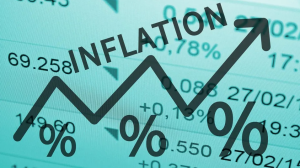
What is peer to peer lending?
Peer to peer lending uses the internet to match someone with money (a lender) to someone who wants to borrow money (a borrower). The loans are made in a marketplace and the company that organises the loans is the matching agent. The matching agent charges fees for facilitating the loan.
If a borrower’s loan is approved, it will be listed in the marketplace with their credit rating, interest rate and term. Lenders can then see the loan on the company’s website and choose to fund it. After a loan is funded the borrower receives their money. The borrower must then make regular repayments of principal and interest to the lender via the matching agent.
- Lending is like a fixed-term investment. You deposit your money when you fund a loan and in exchange you receive repayments of principal and interest for the life of the loan.
- Borrowing is similar to using a bank except it is often faster and easier to get a loan. Borrowers can use P2P for personal loans, business loans and mortgages. NZs’ P2P companies let you borrow up to about $35,000 unsecured and up to $2,000,000 secured.
P2P can also be used to make currency transfers. Participants can agree to the exchange rate on offer or bid for a better rate. While banks usually charge fees and a large margin on top of the exchange rate, P2P currency transfers are made at the rate agreed by the two participants and have no bank margin loaded into the exchange rate, the marketplace will charge a fee for facilitating the transaction.
Example 1: Car Loan
Bob wants to borrow $5,000 to buy a new van for his plumbing business. He uses a P2P website to apply for a 3-year loan with interest of 13%. Sally has $5,000 to invest. She sees Bob’s loan in the P2P marketplace and decides to fund his loan. Bob gets his $5,000 then makes monthly payments of $168.47 to Sally over 3 years.
Example 2: Currency Transfer
Cleo wants to exchange New Zealand Dollars for £2,000 for her upcoming holiday. Rather than going to a bank, she uses a P2P currency website to make her transfer. Tony has £2,000 to sell for New Zealand Dollars. He sees Cleo’s listing in the marketplace and agrees to the exchange at a rate of 1 NZD = 0.516949 GBP. Cleo gets £2,000 and Tony receives $3,870.
Do we have peer to peer marketplaces in NZ?
Yes, New Zealand currently has registered P2P lending companies but no P2P currency transfer agents. Examples or peer to peer lenders are Harmoney, Lending Crowd, Squirrel Money and Zagga. The first to launch was Harmoney in September 2014, closely followed by the other three in 2015. These companies are regulated by the Financial Market Conduct Act 2013.
Although there is no New Zealand based P2P currency transfer service, Kiwis can still use international services such as Currency Fair.
Is it safe to be a lender?
P2P investing (lending) carries risk like any other investment. However a P2P investment is fundamentally different than putting money into investment products in a bank or finance company. The process by which P2P providers facilitate a loan is as follows:
- The credit worthiness of each borrower is assessed upon application, if appropriate they are given a credit rating and can list their loan.
- Investors can assess the loan details, what the loan is going to be used for and the credit rating.
- If an Investor decides to proceed they can split their investment by means of a technique called fractionalisation. Instead of investing the whole amount into one loan they have the ability to break down their investment into small chunks i.e. in Harmoneys’ case $25 chunks called ‘notes’. Investors can partially fund many different loans hence spreading their risk.
The key point here is that the investor is not lending to a bank or institution for a return, they are lending to person who submitted the loan request i.e. they are being matched. However, in the case of a default in payment it will be the platform provider who chases the borrower to ensure they get on track with making their interest payments (not you the lender!).
Is peer to peer cheaper
Yes it can be, for the following reason:
Doing a straight comparison of loan establishment charges P2P marketplaces are similar to other loan providers in the market. What makes P2P borrowing cheaper is the process of matching an investor to a borrower without the costs of a middleman. In theory, you borrow at a cheaper rate than you can get elsewhere and they invest at a better return than they can achieve elsewhere.
How do they do this?
They provide a marketplace (website) to manage all of the borrowing and investing activity over the internet, then make money via the volume of people using the site. Compare this to a bank which has to maintain an office and branch network and has significantly higher costs to run.
Remember P2P providers are not lending you the money, they are providing a place for the transaction to take place and they take a fee for providing the platform.






